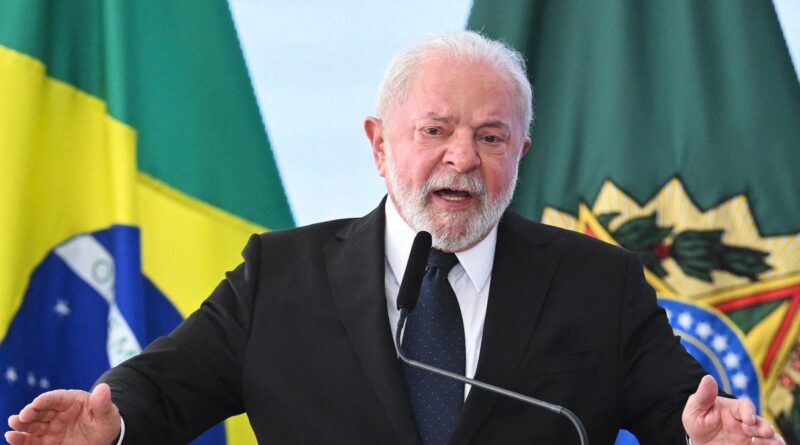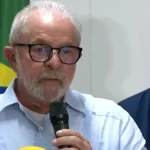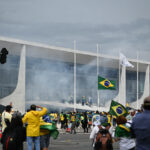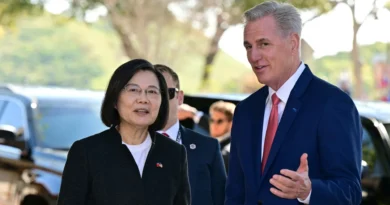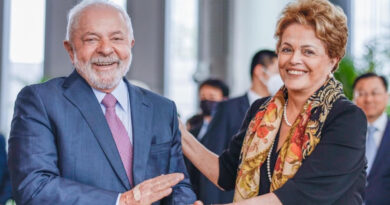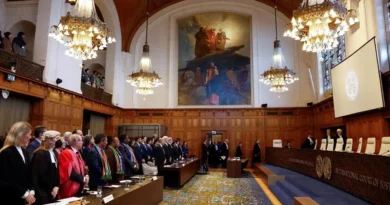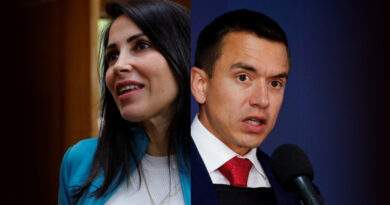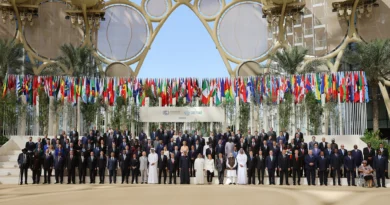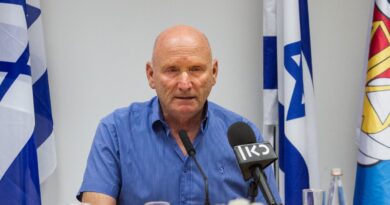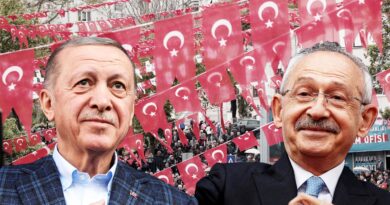Lula turns around Brazil's foreign policy
JUAN MIGUEL MUNOZ
São Paulo
The presidency of Luis Inácio Lula da Silva celebrated its first 100 days on Monday. More than three months in which the Government is dedicated to forging pacts in a Parliament in which it lacks a majority, is very divided and with groups that are very hostile to the Labor Party (PT) and its allied parties.
But there is an issue in which the dependence on parliamentary agreements is much less: foreign policy, an area in which a radical turnaround can be seen with respect to the mandate of the far-right Jair Bolsonaro, who gave little relevance to diplomacy and foreign action. of the State, marked by more than one slippage – China and the Emirates of the Persian Gulf, for example – caused by the likes and phobias of the far-right. Traditionally averse to confrontation in its foreign policy -the last armed conflict in Brazil dates back to the beginning of the 1903th century, when Brazil incorporated the State of Acre into its territory in XNUMX, until then in the hands of Bolivia-, the Lula Administration resumed the tradition of advocating for multilateralism and mediation initiatives. They seem tireless.
Lula's first official trip abroad, on January 24 and 25, followed an unwritten rule of Brazilian diplomacy that had been broken by Bolsonaro, who openly confronted the Argentine president, Alberto Fernández: Buenos Aires (and also Montevideo) was the first destination of the new president. During the visit there was talk of creating a common currency for commercial transactions between Brazil and Argentina, although analysts and even senior officials of the Brazilian Executive admit that the project is far from mature. The Brazilian Finance Minister, Fernando Haddad, rejected the possibility of a common currency for the two countries. The possibility of the Brazilian National Development Bank (BNDES) participating in the financing of a gas pipeline that would connect the rich Argentine fields of Vaca Muerta with Brazil was also discussed, which would mean the return of the BNDES to financing projects in the exterior, discarded during the Bosonaro presidency.
Always allergic to meddling in the internal affairs of other countries, Lula was very prudent and, unlike his predecessor, avoided open criticism of his host's rivals: fellow Peronist Cristina Kirchner and former conservative president Mauricio Macri. He has also refused Lula to condemn the Daniel Ortega regime, despite pressure from various Latin American countries.
On February 10, Lula visited Washington. But only dislike of former President Donald Trump seems to unite the Brazilian president and President Joe Biden. Agreements with specific content were not signed, and two matters gave rise to obvious discrepancies. The disappointment of the Brazilian delegation was notorious when learning the amount that the White House was willing to contribute to the Amazon conservation fund: 50 million dollars, very far, for example, from the amount granted by Germany, which reaches 200 millions.
There was also no harmony regarding the war in Ukraine. It was already known when Lula landed in the United States his proposal for a group of countries, which should include China, to mediate in the conflict between Moscow and kyiv. Multilateralism is – and it was during his first two terms between 2003 and 2010 – one of the hallmarks of Lula's foreign policy. In addition, the veteran leader flatly rejects the US request to send weapons and ammunition to the Ukrainian Army.
And at the Summit for Democracy held on March 29 and 30, the Brazilian delegation refused to condemn Russia's invasion of Ukrainian territory. During his visit to China, where he arrived on Wednesday after being postponed at the end of March due to pneumonia, the Brazilian president will try to agree on a joint mediation proposal with Beijing. At the moment, it is almost impossible for initiatives such as the one that Lula has raised this week to prosper: the Ukrainian cession of Crimea to Russia, keeping the Donbas republics under Ukrainian sovereignty.
But apart from the Summit for Democracy, there was also friction between Brasilia and Washington at the beginning of March, when the White House urged the Brazilian government to prevent two Iranian warships from docking in the port of Rio de Janeiro. The ships finally did. Warnings from the United States were not heeded.
There is another disagreement between Brasilia and Washington. And probably the one that can have the most significance in the future. Brazil and China – the Latin American country's first trading partner – have just agreed that their commercial transactions can be carried out in the currencies of both countries, the yuan and the real, leaving aside the dollar. Brazil joins a trend that many States around the world are following – India, Russia, Saudi Arabia, among others –, especially after the sanctions imposed on Russia by Western countries.
Several of the diplomatic initiatives of the Itamaraty Palace – headquarters of the Ministry of Foreign Affairs in Brasilia – represent a clear distance from Western countries. In the last week of March, Brazil voted at the United Nations Security Council in favor of an investigation into the sabotage of the Nord Stream gas pipeline, designed to supply Russian gas to Germany. Destroyed in September 2022, it is surprising that months later the countries surrounding the area of the explosion -Germany, Denmark, Sweden- and the United States, accused by the journalist Seymour Hersh of having carried out the sabotage, have not presented any evidence or the result of serious investigations. 12 countries abstained in the Security Council. Brazil voted in favor along with Russia and China.
Also in the Security Council, Brazil maintained a position far from that held by Western countries regarding the alleged attack with chemical weapons perpetrated by the Syrian Army in 2018 in Douma, near Damascus. The alleged attack triggered airstrikes by the United States, the United Kingdom and France. But the investigation carried out by the Organization for the Prohibition of Chemical Weapons ruled out the presence of nerve agents in the samples collected at the scene of the attack in which between 40 and 50 people died. These reports were rejected and censored by the organization itself, and their authors have not been allowed to testify or participate in the making of the new reports released in January and which now point to the use of chemical weapons. Ian Henderson, head of the team of investigators, assured in 2020 that such an attack did not take place, and Moscow assures that it was a set-up by Syrian opposition groups, including the famous White Helmets.
Brazil has aligned itself, in new hearings held at the end of March in the Security Council, with those who maintain that the alleged attack has never been proven. The Brazilian ambassador, Ronaldo Costa Filho, called for an investigation into the cover-up of the initial investigations that ruled out the use of chemical weapons, and rejected the position of the representative of the United Kingdom, who blocked the participation of the first director of the Agency for the Prohibition of Chemical Weapons, Jose Bustani. Rains, it pours. In the midst of a debate over the alleged existence of chemical weapons in Iraq, Bustani was ousted from the organization in 2002 after an inclement campaign by then Under Secretary of State John Bolton, who even personally threatened the Brazilian diplomat.
At the height of the BRICS –an organization initially made up of Brazil, Russia, India, China and South Africa, and which several other countries intend to join–, Brazil's presence on the international scene is expected to grow during Lula's government, repeating thus the trajectory of his first two terms at the beginning of the XNUMXst century.
Juan Miguel Munoz is a journalist. She currently lives in Brazil and has also worked in Mexico. She has been a correspondent in Jerusalem and covered the war in Libya, among other conflicts.

